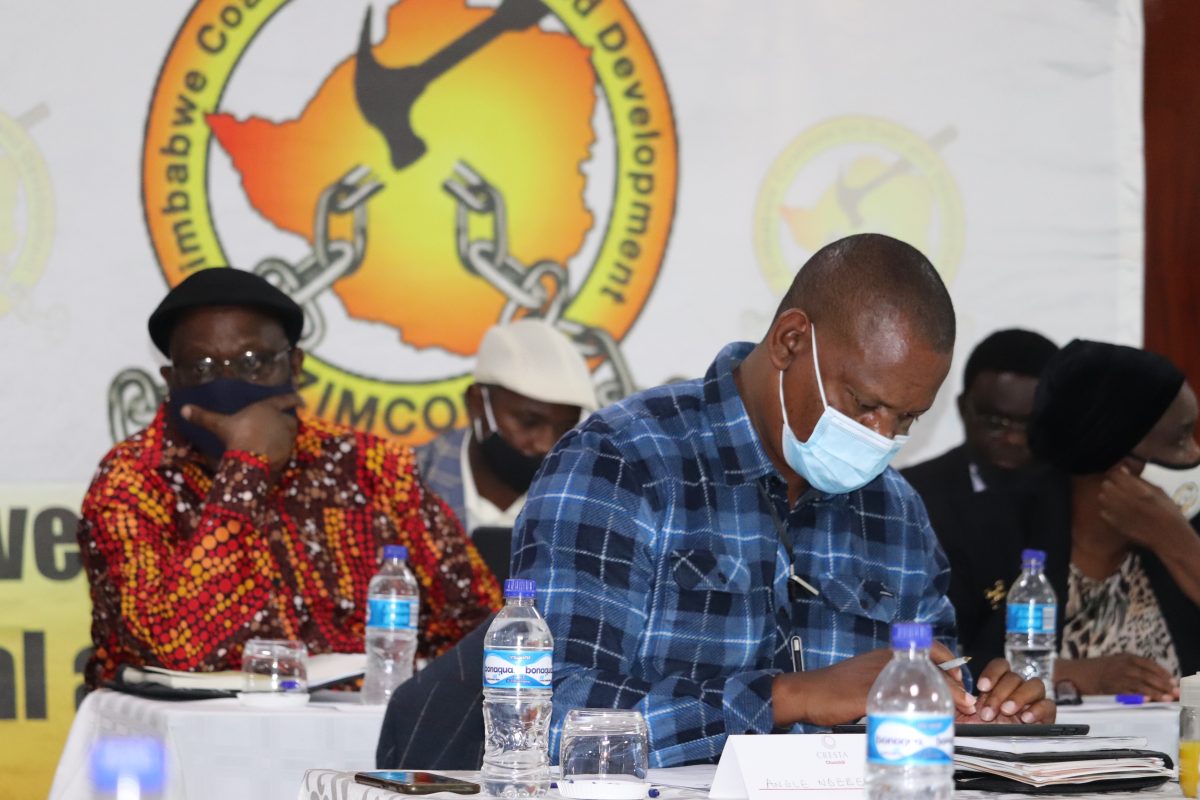The 2020 Debt Conference has kicks-off today the 7th and will run until the 9th of October 2020 in Bulawayo. The Zimbabwe Coalition on Debt and Development (ZIMCODD) hosts this annual event in partnership with the African Forum and Network on Debt and Development (AFRODAD).
The Multi-Stakeholder Debt Conference is running under the theme Strengthening Transparency and Accountability in Public Debt Management for Sustainable Development. The conference brings together different stakeholders from diverse backgrounds such as government, parliament, think tanks, civil society organizations, International Financial Institutions, the private sector, academia, and the media to discuss the pressing matter of debt in Zimbabwe.
The conference is a platform to communicate clearly on issues of debt and provide regular and detailed updates. John Maketo, Programmes Manager for ZIMCODD shared that “…the conference intends to discuss the impact of Zimbabwe’s debt on citizens especially how it affects public service delivery, human rights, and inequality”.
The conference further seeks to build collaborative plans and strategies to tackle Zimbabwe’s rising debt. In line with ZIMCODD’s thrust to ensure people-driven initiatives, there will be wide consultations with stakeholders (especially community members) so as to jointly develop and share policy recommendations that would potentially address Zimbabwe’s debt situation.
An inquiry into the intersection between natural disasters, pandemics, and public sector debt will be done at the conference with critical discussions focusing on Illicit financial flows, Inequality, and the rising of public debt. More importantly, the conference will put attention on the impact of public debt on citizens specifically how it affects social service delivery, human rights, and fuels inequality.
With corruption continuing to be one of the major economic challenges in the country and a hindrance in addressing the looming debt, the conference will dedicate time to discuss debt transparency and accountability especially in the context of procurement and tendering in government projects.
Recently, the public raised alarm regarding the abuse of public funds in procurement of COVID-19 materials which then resulted in the dismissal of the Health Minister Hon Moyo. Many donors and International Financial Institutions who contributed resources towards responding to Covid-19 preferred to channel resources through UN agents citing lack of accountability on government.
Since 2001, Zimbabwe has experienced problems in servicing its external debt. Multilateral financial institutions have since found it difficult to further lend the country. Since then, the country has resorted to bilateral borrowing and issuing treasury bills on the domestic market or alternatively borrowing from China whose loans have been in the spotlight because their terms remain undisclosed to citizens.
Unlike countries that enter into debt primarily to finance development, Zimbabwe has been blamed for incurring debt to finance non-productive expenditures which make debt repayment difficult. This has placed the country into an unsustainable debt situation. At the end of 2018, the debt was estimated by the IMPF to be at 9 billion US dollars. With such a debt, the country will not be able to finance its infrastructural developments which are estimated by AfDB to be around US$33.8 billion.
Many developing countries rely on commodities that are subject to external shocks hence affect government revenue. Official credit has been declining over the past years and this has given rise to private creditors which is a more expensive way of financing development. The expensive loans that Zimbabwe is currently relying on are further denigrated by limited accountability and transparency.
In Zimbabwe, there are perennial issues of non-compliance to Public Finance Management legislation where the government continues to spend outside parliament approval as revealed by the Auditor-General’s reports and Parliament Portfolio Committee on Public Accounts reports. The need for fiscal discipline has been emphasized even by the IMF during its last Article IV Consultations in 2019. The attempt to remove borrowing from foreign entities from parliamentary scrutiny in the constitution amendment Bill (No.2) threatened sustainable public finance management.
With such a background the 2020 Annual Debt Conference will explore transparency and accountability issues around public finance management as well as issues around sustainable debt management with the ultimate objective of promoting inclusive development. The conference will pick up outcomes of the 2019 debt conference to deepen the understanding of a cross-section of issues, and the related opportunities and challenges.
Given the ongoing restrictions on social distancing, the conference has a limited number of participants but is encouraging more people to participate virtually by following:
Zoom: https://us02web.zoom.us/j/89669379250?pwd=V1E1OWRWVlYwczFtdW03Slg4cUprQT09
Twitter: @zimcodd1 follow the #2020DebtCon
Facebook: Zimbabwe Coalition on Debt and Development
